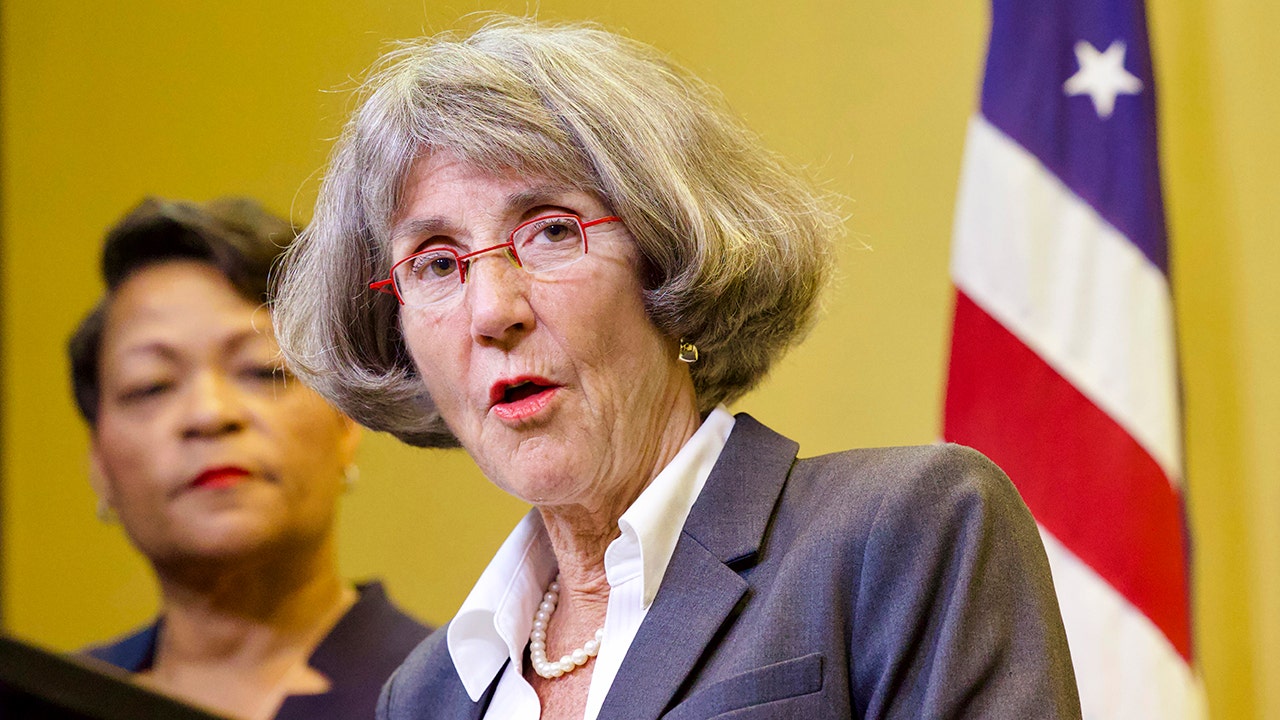In January 2013, a Montana livestock worker returned to the United States from Kyrgyzstan hiding tissue from a Marco Polo argali sheep, one of the largest in the world, federal prosecutors said.
The worker took the tissue to Arthur Schubarth, 80, a rancher from Vaughn, Mont., who intended to use it to create a giant sheep hybrid that he could sell to shooting preserves, according to prosecutors. They said that for nearly a decade until 2021, Mr. Schubarth illegally used tissue from the animal, which is banned in Montana, to create the species — including in 2019, when he bought a bighorn sheep’s testicles to extract semen.
His scheme was uncovered by the authorities after they learned that he was using forged veterinary inspection certificates to move sheep in and out of Montana, prosecutors said.
On Tuesday, Mr. Schubarth pleaded guilty in U.S. District Court in Montana to two felony wildlife crimes: conspiracy to violate the Lacey Act and substantively violating the Lacey Act, which prohibits the trafficking of illegally taken wildlife, the Justice Department said in a statement on Tuesday.
It was unclear exactly how the authorities discovered Mr. Schubarth’s plot. The Montana Department of Fish, Wildlife and Parks declined to comment, saying that its investigation was still active. In a statement on Tuesday, Ron Howell, chief of enforcement for the department, described the case as “complex.”
“The kind of crime we uncovered here could threaten the integrity of our wildlife species in Montana,” Mr. Howell said.
The U.S. Fish and Wildlife Service, which was also investigating the case, did not immediately respond to a request for comment on Thursday.
Under the scheme to create a giant sheep hybrid, an unidentified livestock worker returned to the United States from Kyrgyzstan in 2013 with tissue from the Marco Polo argali sheep, which was not declared upon arrival, prosecutors said. The male Marco Polo argali sheep, which are native to mountainous regions of Central Asia, can grow to weigh more than 300 pounds and have horns that can span more than five-feet wide, according the Justice Department.
Argali sheep are protected internationally, as well as in the United States by the Endangered Species Act. They are banned in Montana to protect native sheep from illnesses and hybridization, according the Justice Department.
In October 2015, Mr. Schubarth contracted a lab to create cloned embryos using tissue from the Marco Polo argali sheep, according to court documents. About a year later, in November 2016, Mr. Schubarth received 165 cloned embryos, which he then implanted in ewes on his sprawling 215-acre ranch, according to court documents.
In May 2017, a single, pure genetic male Marco Polo argali sheep was born, and Mr. Schubarth named it Montana Mountain King, prosecutors said. The next year, Mr. Schubarth began harvesting semen from Montana Mountain King, and he soon shipped straws of his semen to buyers across the country, according to court documents.
Mr. Schubarth then worked with at least five other people across the country to try to create an even larger sheep hybrid — including in 2019, when he bought the testicles of a bighorn sheep, according to prosecutors.
In July 2020, Mr. Schubarth agreed to sell 11 offspring of the Montana Mountain King to someone in Texas for $13,200, according to court documents. Mr. Schubarth and his co-conspirators were able to transport offspring of the Montana Mountain King across the country by using forged veterinary inspection certificates that claimed the offspring were a legally permitted species, prosecutors said.
The co-conspirators who worked with Mr. Schubarth were not identified by prosecutors, or in court documents. It was unclear on Thursday whether they would also face charges.
Mr. Schubarth, who is scheduled to be sentenced on July 11, could face up to five years in prison for each felony count, along with a fine of up to $250,000 and three years of supervised release, the Justice Department said.
A lawyer for Mr. Schubarth did not immediately respond to a request for comment on Thursday.
Todd Kim, an assistant attorney general with the Justice Department’s Environment and Natural Resources Division, said in a statement on Tuesday that Mr. Schubarth had participated in a plot that could have harmed native animals in the United States.
“This was an audacious scheme to create massive hybrid sheep species to be sold and hunted as trophies,” he said.






